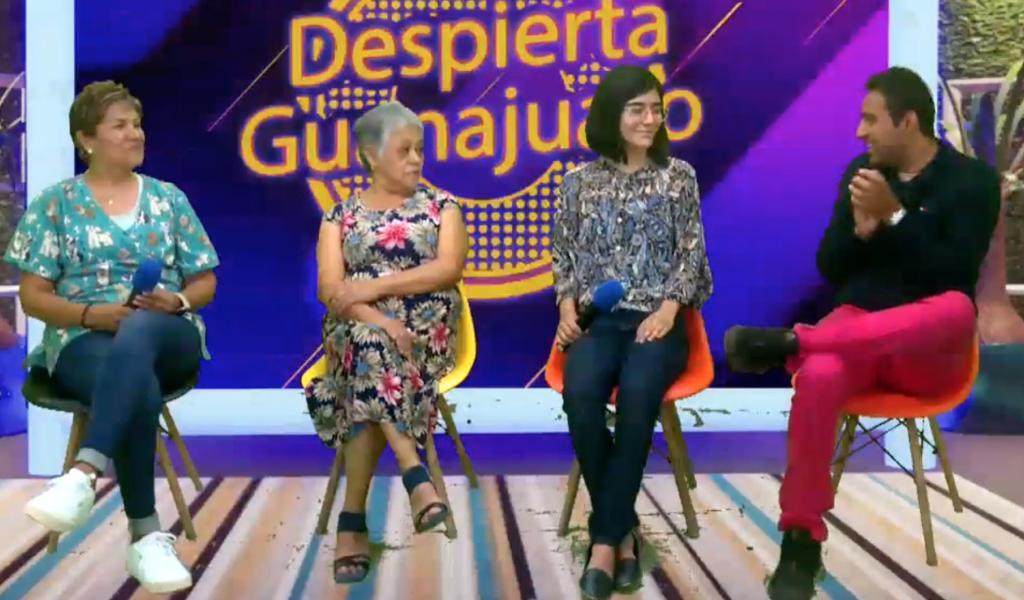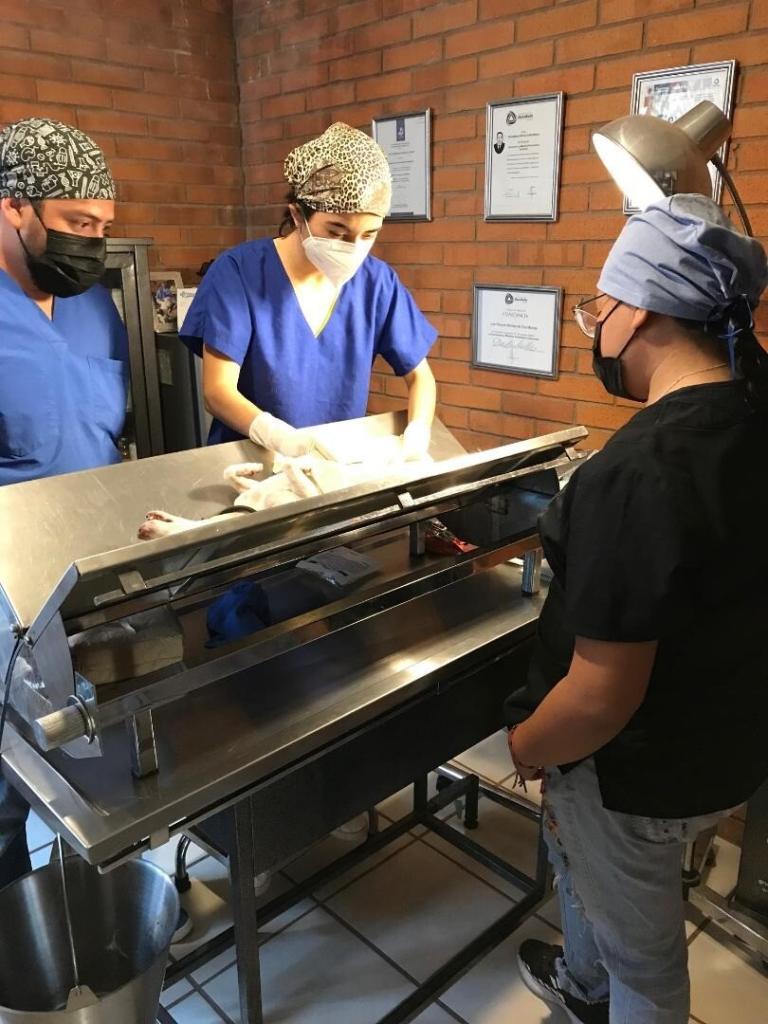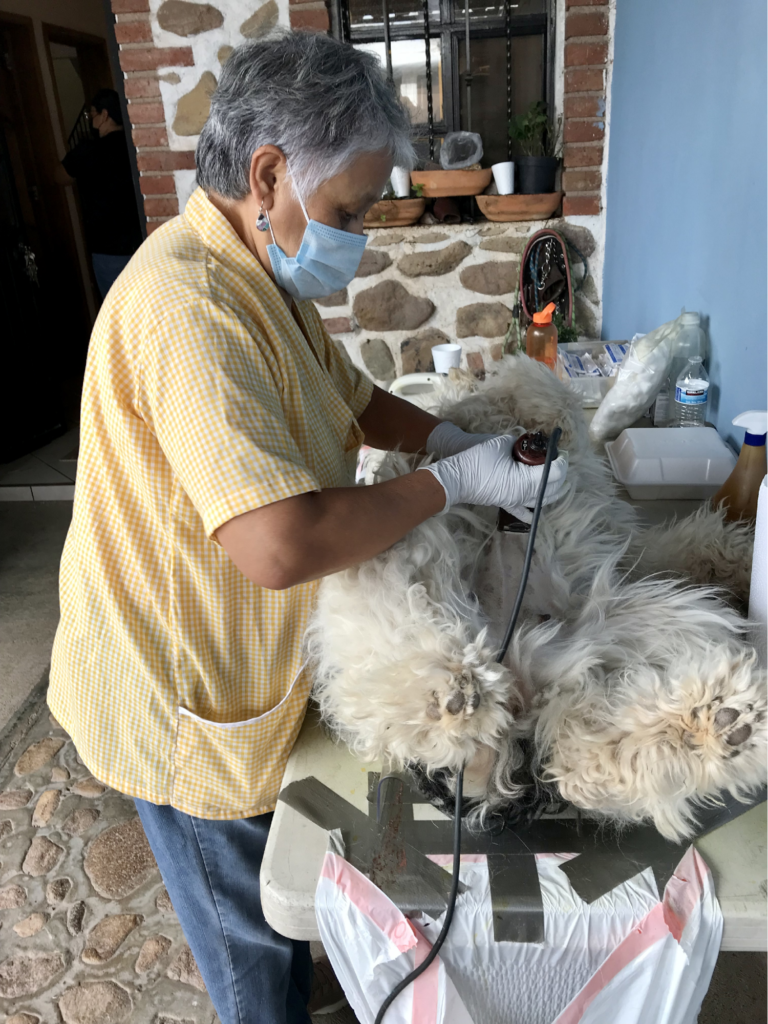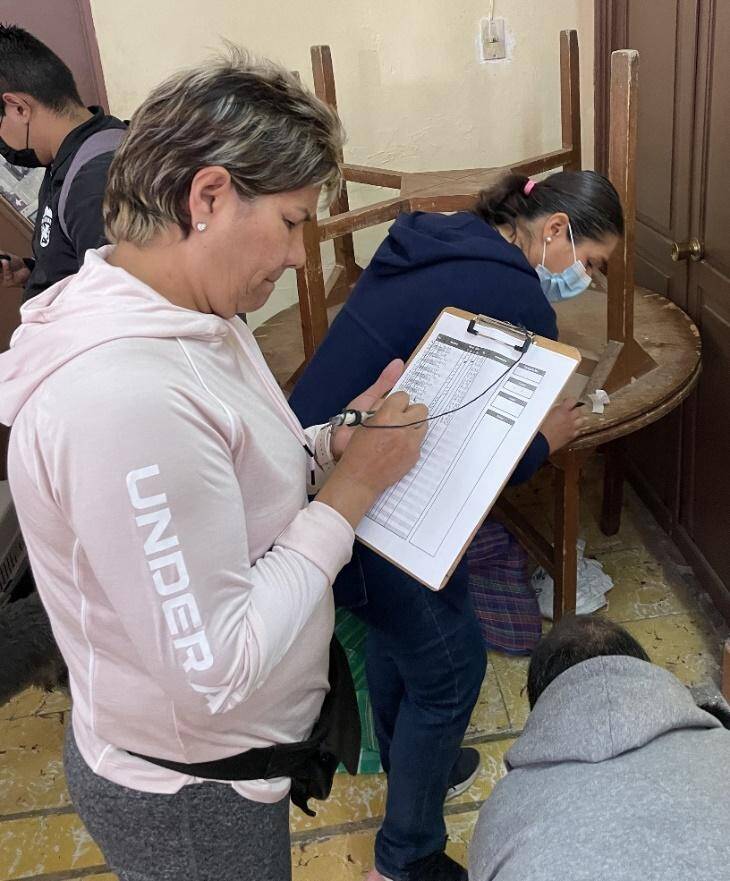On Thursday, July 20, Karla Ahumada, Vero Mares, and Vicky Sandoval, who are three regular volunteers at our sterilization campaigns, told Luis Camacho, the host of Channel 8’s morning program “Despierta Guanajuato” (Wake-up Guanajuato), about their participation in our campaigns. You can watch their interview by clicking here.

Karla has just completed a three-year program at the University of Guanajuato School of Veterinary Medicine in Irapuato and will shortly be awarded her doctoral degree in veterinary medicine. Over the past several years she has frequently volunteered at our campaigns, where her work has focused on assisting the surgeons, preparing post-operative medications for the pets’ owners to take home, checking on animals in the recovery unit, and, in recent months, performing surgeries herself after receiving one-on-one training in rapid spay and neuter techniques from one of our veterinarians. Her participation in our campaigns has given her practical experience that has enriched her academic instruction.

Vero Mares, a devoted animal lover and rescuer, has volunteered at our campaigns for some 20 years. Her usual job is preparing the dogs and cats for surgery after they are anesthetized. She puts lubricating drops into cats’ eyes (which remain open while cats are unconscious), gently pulls each animal’s tongue out of its mouth and drapes it to one side to prevent strangulation, shaves the surgical site, expresses urine from the animal’s bladder, swabs the surgical site several times with an antiseptic solution, and frequently checks the color of the animal’s gums, its breathing, and its heart rate until it goes to the surgical unit.

Vicky Sandoval, another regular campaign volunteer, often helps to set up our equipment, registers pets when they arrive at a campaign, monitors the animals when they enter the recovery unit after surgery, or helps to keep the campaign site clean.

If working in the registration area, when an animal arrives at a campaign Vicky weighs it, records information about its age, sex, and owner, and writes its name and weight on a piece of masking tape, which she attaches to its head. If an animal appears to be unwell or severely malnourished, she will ask a veterinarian to examine it to determine whether it is well enough to undergo surgery. After registration, the animals are anesthetized by a veterinarian.
When attending animals in the recovery unit, Vicky will place cats in plastic laundry baskets that have been lined with newspaper, and lay dogs on the floor, which has been covered with a soft mat, a tarp, and newspaper. She positions the animals on their sides and covers their bodies with blankets provided by their owners. Then she checks to make sure each animal’s tongue is still protruding from its mouth, checks its breathing and heart rate every few minutes, checks the wound for possible bleeding, and examines the color of its gums to make sure they are a healthy pink.
As soon as an animal begins to wake up, she gently rubs its ears and pats its back while talking to it, then calls the owner. When the animal can lift its head and sit up, it is ready to be discharged. Vicky puts cats into their carriers, puts collars leashes back onto the dogs, and helps the owners carry their dogs to waiting vehicles.
During their interview, the three volunteers described some of their experiences at the campaigns and their reasons for participating in them, despite the long hours and hard work involved.
